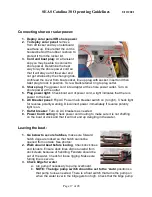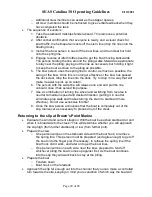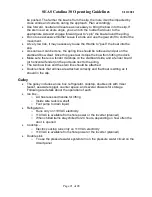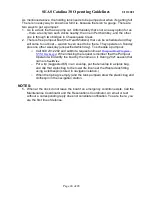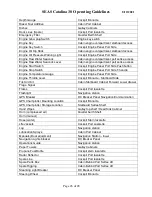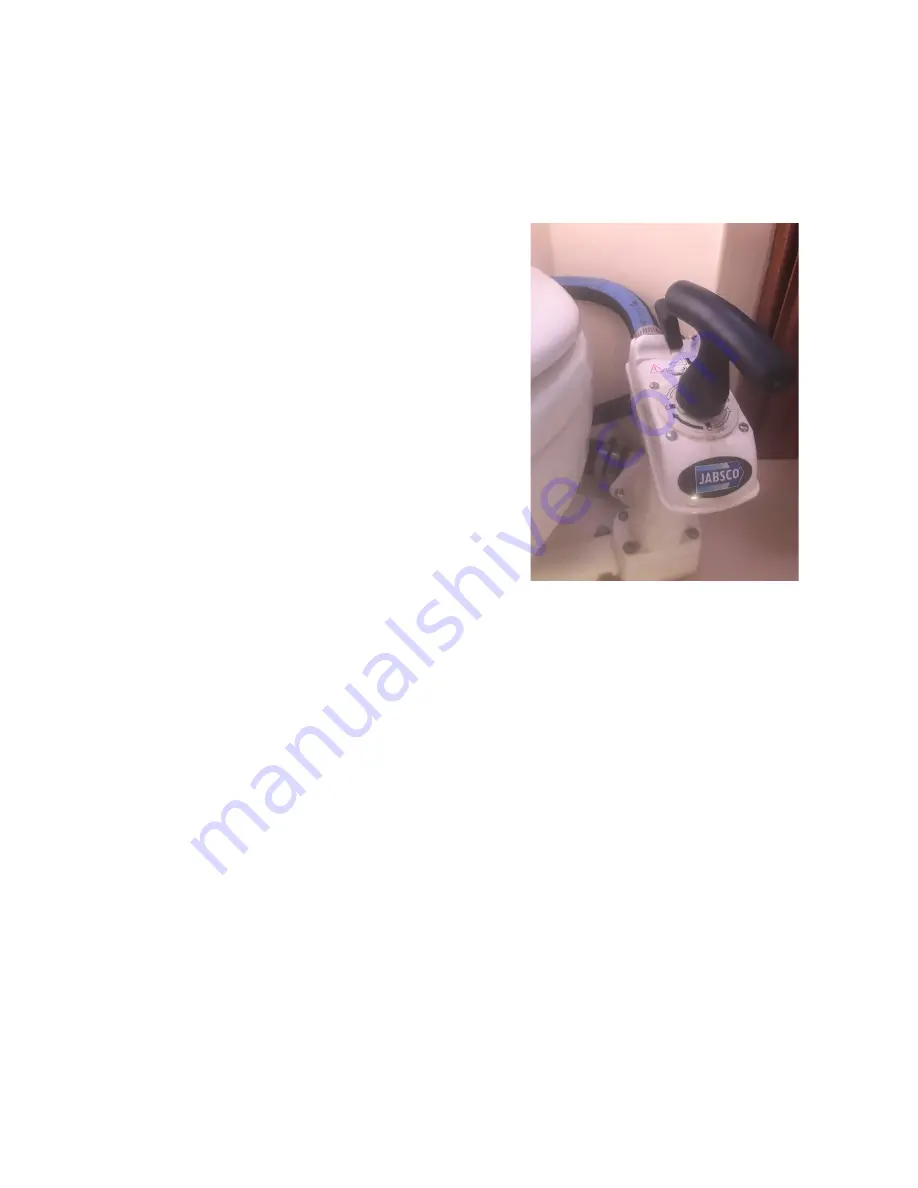
SEAS Catalina 30 Operating Guidelines
8/10/2021
Page 23 of 28
Head Operation
The head is a standard manual marine toilet. The steps to use it are:
1. Turn on the water pressure at the electrical panel. We use fresh water to
flush, not sea water, because it keeps the boat smelling better
2. Always keep the wet bowl/dry bowl
switch on the head in the dry bowl
position. In the picture at right, the switch
is in the wet bowl position
– you want it
the other way
– to the right (It’s the lever
behind the big handle)
3. Use the shower head hose from the washbasin to put the necessary amount
of water in the toilet bowl
4. Do what you came for
5. Pump the handle up and down as necessary to flush the toilet. The handle
may be locked in place; if it is a quarter turn to the left unlocks it. You may
need to add more water from the washbasin hose
6. Be judicious with the amount of fresh water you use. You want to get the toilet
completely flushed
– which means not only getting the waste out of the bowl
and into the pipe leading to the holding tank, but pumping/flushing enough
that the waste gets all t
he way to the holding tank and isn’t left in the pipe.
When you stop pumping there will be some back flow, make sure that’s clear
water. At the same time you don’t want to use more water than necessary
because that will fill the holding tank faster. The tank has only a limited
capacity, and once it’s full the head is out of use until the tank gets pumped
out
7. Leave the pump handle in the down and locked position (turned to the right)
8. Add about a cup of water to the bowl to lock sewer gases in the plumbing
9. Put the washbasin hose back in place and turn off the water pressure at the
electrical panel
Pump Out Procedure









